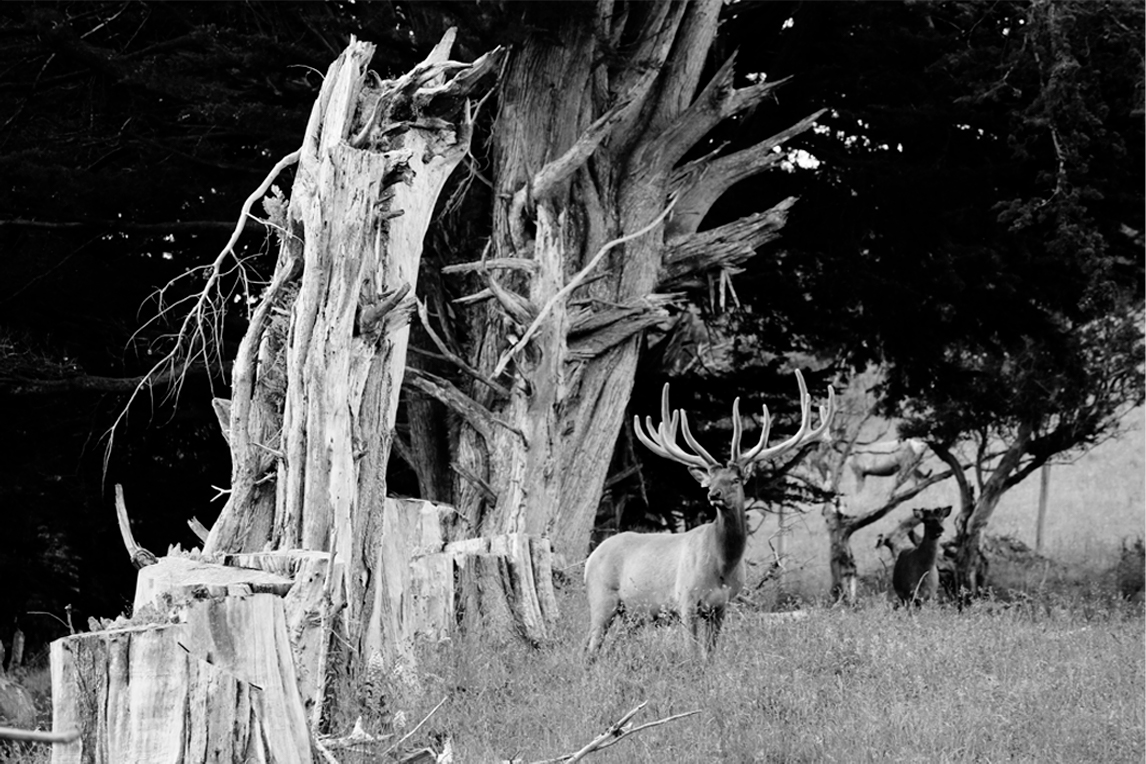Nov 3, 2023
On a gloriously sunny and warm South Canterbury spring day, 25 staff from Environment Canterbury (ECan) and two from Beef + Lamb NZ gathered at the Geraldine Golf Club rooms. The occasion was a Rural Professionals Workshop organised by Sara Elmes (DINZ Industry Capability Projects Manager) to introduce ECan staff to the deer industry and gain an understanding of how deer are farmed.
Surprisingly about three people had previous exposure to deer farming (and a couple were keen hunters) when normally we would expect only one at most. However everyone else was completely in the dark about deer and deer farming.
The day started off with a potted history of the deer industry (introduction of deer into NZ, culling, venison recovery, deer recovery, farming), deer farming systems, deer products and markets.
The next session covered off managing environmental impacts from deer farming and generated a lot of discussion. One ECan staff member (ex-Hawkes Bay Regional Council) was very aware of the work that the industry has been doing over the years and is a keen supporter of the industry.
Lunch in the Geraldine sun was a good opportunity to interact more with the attendees and make sure that all their areas of interest had been covered off in the morning (they had!). Following that we all headed off to Peel Forest Estate where Mark Tapley hosted the attendees and provided an overview of the farm before heading out to look at the various environmental improvements that had been put in place over many years. A major talking point was the volume and speed of velvet growth – ably demonstrated with the real product.
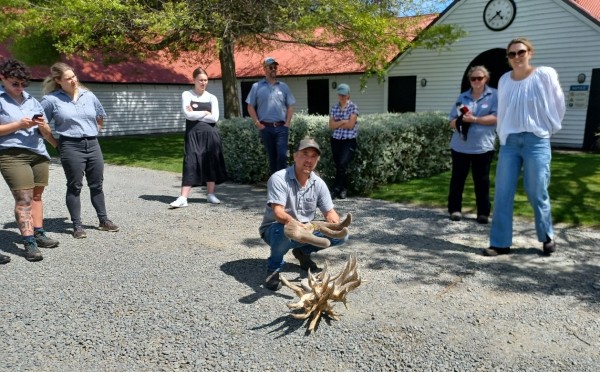
Explaining the difference between velvet and trophy genetics.
As far as a PR exercise goes, it could not have been scripted better. Mark made sure that we stopped off at places where there were new issues cropping up (like wallows starting to be formed or scouring/channelling of water into settling ponds), so people understood that the realities of farming meant that there were always challenges to be met (nothing was ever static).
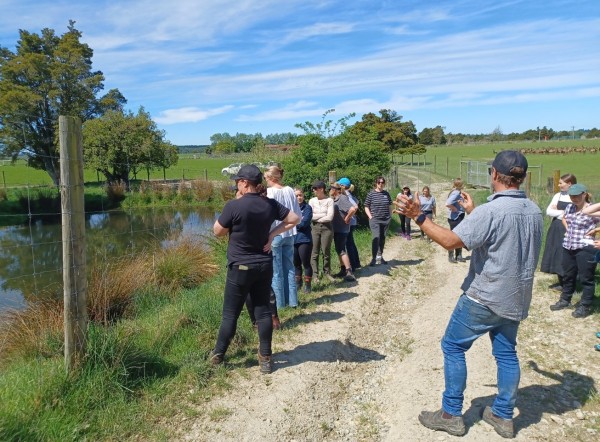
One of many settlement ponds throughout the farm that ensures water flows clear when it leaves the property.
The farm visit finished off at Mark’s new wintering shed, built over last summer and ready for winter. It housed 1350 stags for a few months before they were swapped over for other stock classes.
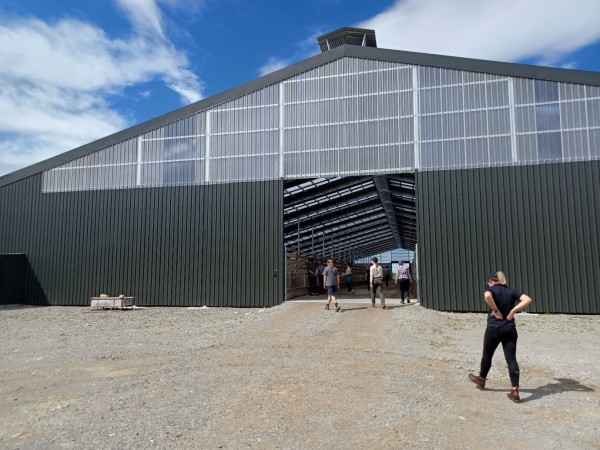
The warehouse, where everyone gets a bargain!
This was a win-win-win for the environment, animal welfare/body condition, feed consumed and pasture condition and growth heading into spring. The ECan staff were impressed to hear that there was no effluent coming out from the shed – it all being trapped in the first 10 cm of bedding.
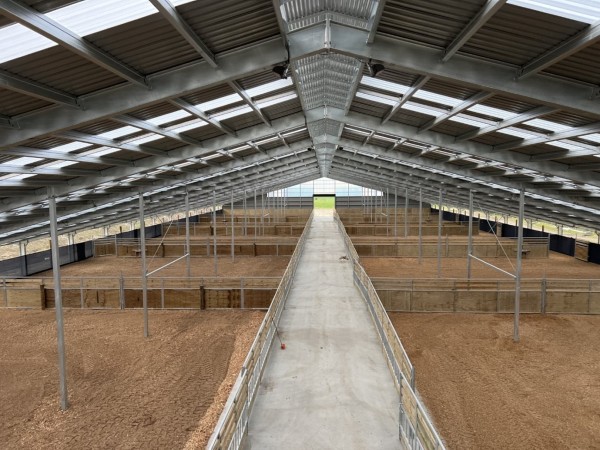
Prime real estate.
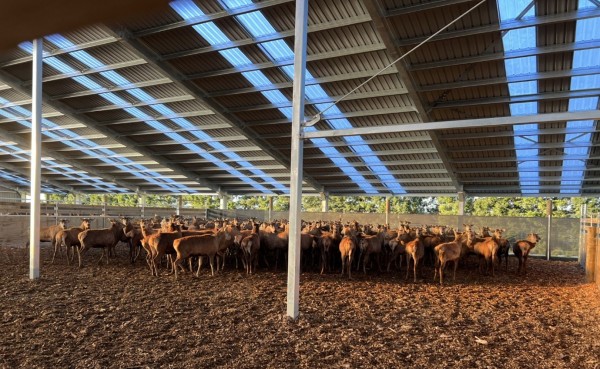
Plenty of room to move around (when no one is looking).
A camera is installed at one end of the shed and Mark said that at 2 am he could see stags still feeding while others had spread out and were sleeping. There was very little sign of bullying and feeding was very easy with a wide lane down the middle for vehicles. His only comment for improvement would be to consider lowering the bund outside to improve airflow to help dry out the bedding material quicker. Designed by Mark and materials self-sourced, the payback time is estimated at 9 years.
This was the last stop of the farm tour and was great way to top off the day. All the attendees found the workshop enjoyable and educational and came away with a greater appreciation of how deer farmers manage environmental risk.
Thanks to Mark Tapley for hosting the participants. DINZ will be holding another workshop for Waikato/Waipa and will organise more where there is an interest from the council and DFA branches.

